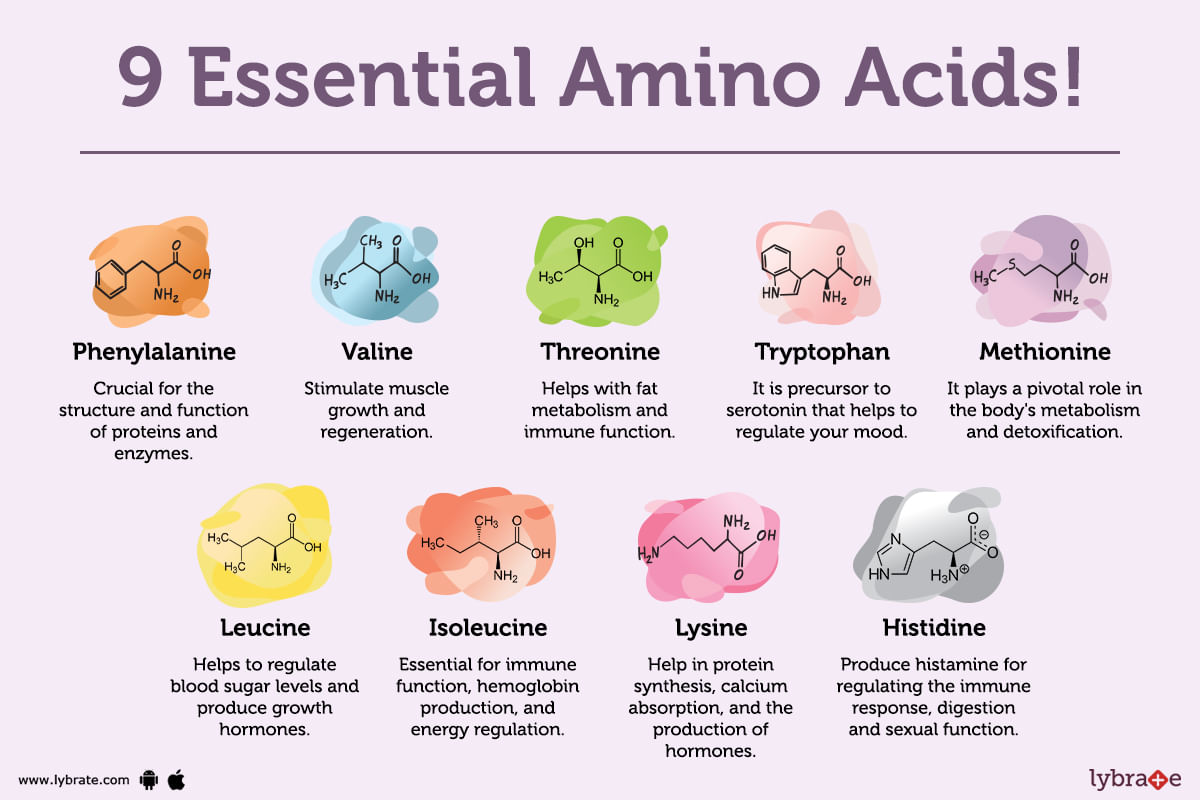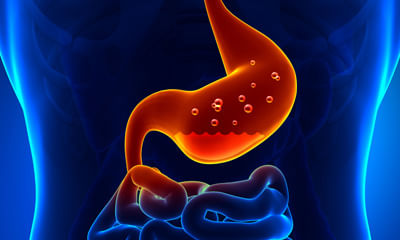Get the App
For Doctors
Login/Sign-up
Health Feed
AllQ&AsTipsQuizzes
Amino Acids Health Feed
Last Updated: 3 years ago• Featured Tip
Share
Bookmark
Report
What are essential amino acids?
An essential amino acid can be best defined as an amino acid that the body cannot produce on its own, unlike nonessential amino acids. It must instead be obtained through food sources, diet, or supplementation.
Furthermore, it must be noted that out of the 20 amino acids your body needs for growth and function, as many as nine are considered essential. And as mentioned above, a human body is not capable of producing them on it...more
Last Updated: 8 years ago• Featured Tip
Share
Bookmark
Report
4 Superfoods and home remedies to get rid of acidity
Excessive secretion of stomach acids brings about the problem of acidity with heartburn and dyspepsia being its common symptoms. There are foods as well as home remedies that can help you to get rid of this problem.
Some of them are:
1. Bananas - Being an excellent source of potassium, this fruit helps to keep acid production in balance. Moreover, certain elements in bananas aid in increasing the production of stomac...more
Excessive secretion of stomach acids brings about the problem of acidity with heartburn and dyspepsia being its common symptoms. There are foods as well as home remedies that can help you to get rid of this problem.
Some of them are:
1. Bananas - Being an excellent source of potassium, this fruit helps to keep acid production in balance. Moreover, certain elements in bananas aid in increasing the production of stomac...more
Last Updated: 8 years ago• Featured Tip
Share
Bookmark
Report
4 Superfoods and home remedies to get rid of acidity
Excessive secretion of stomach acids brings about the problem of acidity with heartburn and dyspepsia being its common symptoms. There are foods as well as home remedies that can help you to get rid of this problem.
Some of them are:
1. Bananas - Being an excellent source of potassium, this fruit helps to keep acid production in balance. Moreover, certain elements in bananas aid in increasing the production of stomac...more
Excessive secretion of stomach acids brings about the problem of acidity with heartburn and dyspepsia being its common symptoms. There are foods as well as home remedies that can help you to get rid of this problem.
Some of them are:
1. Bananas - Being an excellent source of potassium, this fruit helps to keep acid production in balance. Moreover, certain elements in bananas aid in increasing the production of stomac...more
Last Updated: 8 years ago• Featured Tip
Share
Bookmark
Report
Masters in Dietetics and Food Service Ma...read more
Dietitian/Nutritionist•Bangalore
4 Superfoods and home remedies to get rid of acidity
Excessive secretion of stomach acids brings about the problem of acidity with heartburn and dyspepsia being its common symptoms. There are foods as well as home remedies that can help you to get rid of this problem.
Some of them are:
1. Bananas - Being an excellent source of potassium, this fruit helps to keep acid production in balance. Moreover, certain elements in bananas aid in increasing the production of stomac...more
Excessive secretion of stomach acids brings about the problem of acidity with heartburn and dyspepsia being its common symptoms. There are foods as well as home remedies that can help you to get rid of this problem.
Some of them are:
1. Bananas - Being an excellent source of potassium, this fruit helps to keep acid production in balance. Moreover, certain elements in bananas aid in increasing the production of stomac...more
Asked for male, 23 years old from Pune
Share
Bookmark
Report
M.Sc. in Dietetics and Food Service Mana...read more
Dietitian/Nutritionist•Mumbai
Last Updated: 9 years ago• Featured Tip
Share
Bookmark
Report
4 Superfoods and home remedies to get rid of acidity
Excessive secretion of stomach acids brings about the problem of acidity with heartburn and dyspepsia being its common symptoms. There are foods as well as home remedies that can help you to get rid of this problem.
Some of them are:
1. Bananas - Being an excellent source of potassium, this fruit helps to keep acid production in balance. Moreover, certain elements in bananas aid in increasing the production of stomac...more
Excessive secretion of stomach acids brings about the problem of acidity with heartburn and dyspepsia being its common symptoms. There are foods as well as home remedies that can help you to get rid of this problem.
Some of them are:
1. Bananas - Being an excellent source of potassium, this fruit helps to keep acid production in balance. Moreover, certain elements in bananas aid in increasing the production of stomac...more
Health Query
Share
Bookmark
Report
Health Query
Share
Bookmark
Report
Acidity is a common person's of expression of burning pain in upper part of stomach, over the chest in midline, belching, Gas etc also referred as Acid Peptic Disorder caused by increased acid secretion in stomach due to spicy and dried food , tobacco ingestion, alcohol etc irregular timings , stress etc . Inner lining of stomach is inflamed.
Last Updated: 10 years ago• Featured Tip
Share
Bookmark
Report
Children who have continuing recurrence of cough and croup could be suffering from stomach acid reflux problems.
Croup or ‘Kali Khansi’, as it is called in local parlance, is recognized by a loud cough that often sounds like the barking of a seal. It can cause rapid or difficult breathing, and sometimes wheezing. Croup is thought to be caused by a virus, but reflux acidity has been suggested as a possible trigger.
In gastroesophageal reflux disease, stomach acid causes swelling...more
Croup or ‘Kali Khansi’, as it is called in local parlance, is recognized by a loud cough that often sounds like the barking of a seal. It can cause rapid or difficult breathing, and sometimes wheezing. Croup is thought to be caused by a virus, but reflux acidity has been suggested as a possible trigger.
In gastroesophageal reflux disease, stomach acid causes swelling...more
Last Updated: 10 years ago• Featured Tip
Share
Bookmark
Report
M.Sc. in Dietetics and Food Service Mana...read more
Dietitian/Nutritionist•Mumbai
What kind of diet changes can help acid reflux?
One thing you can do to reduce your risk for heartburn and acid reflux disease is to eat low-fat, high-protein meals. Also, eat smaller meals more frequently; stop eating before you get too full.
Pay attention to foods that seem to trigger your heartburn and avoid them as much as possible.
Beverages that commonly trigger heartburn or make it worse, include:
Coffee or tea (both regular and decaffeinated)
Othe...more
One thing you can do to reduce your risk for heartburn and acid reflux disease is to eat low-fat, high-protein meals. Also, eat smaller meals more frequently; stop eating before you get too full.
Pay attention to foods that seem to trigger your heartburn and avoid them as much as possible.
Beverages that commonly trigger heartburn or make it worse, include:
Coffee or tea (both regular and decaffeinated)
Othe...more
Ask a free question
Get FREE multiple opinions from Doctors
posted anonymously



















